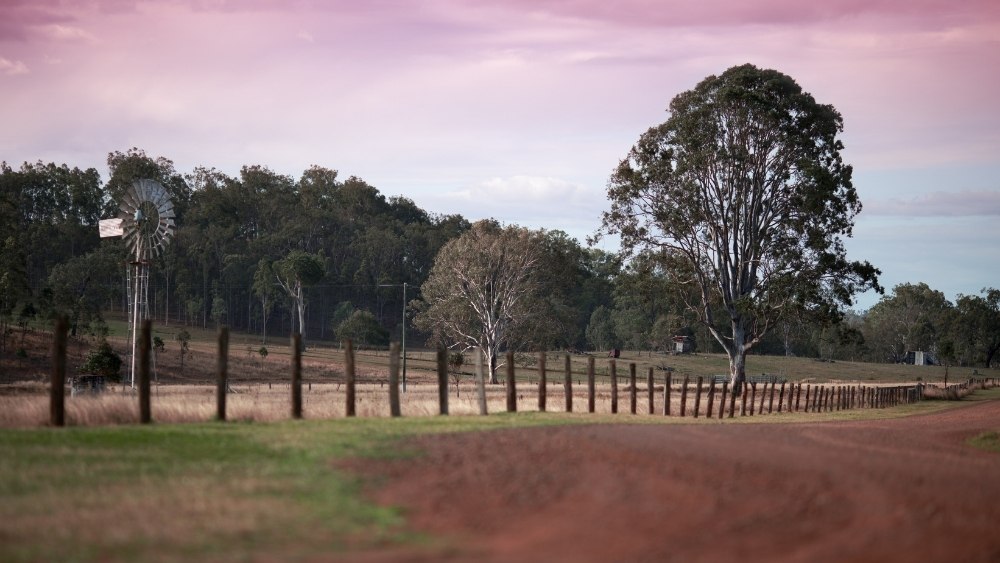Rural property brings with it unique considerations whether you’re a seller or a buyer.
Water rights, road access, chattels such as tools and machinery, environmental restrictions, mining exploration licences, Crown leases and much more are all part of the proposition when it comes to buying and selling rural land.
The list of potential issues that should be addressed in a contract for sale is long and multifarious. Some of those issues will be looked at in this article but for those considering a purchase of land in the country, expert legal advice should always be sought before putting your signature to a contract to ensure all pertinent considerations have been checked off.
Key Considerations for a Contract to Sell Rural Land
It’s important to ensure that all items involved in the sale of rural land are included in the contract.
Water: Whether water rights are included with the land is a key consideration when buying a rural property.
Does it include a water licence, a private water scheme, or shares in a cooperative group of water users? Licences can be checked with the relevant government department, while rights under a scheme or co-operative agreement may require the buyer to check the agreements under which they operate to work out how much water is allocated to the property.
A buyer should also check that water infrastructure on the property is included in the sale.
Chattels, stock and crops
Established rural properties will generally include a range of tools, farming implements, pumps, sheds, tanks, gates, roads, cattle yards, irrigation equipment, stock and crops.
GST is payable on chattels, as opposed to fixtures, and therefore they should be listed in an inventory with their agreed value in the contract.
Sellers of the property should also work out whether the land or the operating entity owns the chattels, stock and crops, and is able to sell the items. Likewise, buyers should understand whether they are buying from the landholder or the operating entity.
Whether any items are covered by a personal property security interest should also be addressed prior to signing a contract.
In regards to stock, the contract should deal with which party pays the transaction levy – a charge on the sale or transfer of cattle or livestock between production and processing stages, or that are delivered for export by a producer.
Crops: Are standing crops part of the sale, or will they be harvested before settlement? What are the contractual terms if the seller needs to access the land to harvest crops after settlement?
Where crops are included in the sale, the contract should stipulate who will manage them once the document is signed, whether the land or operating entity is buying the crops and whether they attract GST.
If there are items on the land regarded as fixtures (such as heavy, fixed pieces of production equipment), are they part of the sale or will they need to be removed? Again, detail on the treatment of fixtures should be reflected in the contract.
Licences, covenants, restrictions
A buyer needs be clear about whether the land being purchased includes Crown licences or leases, which may not be transferable.
A landowner under a Crown lease, for example, may only be able to transfer it to a buyer with the approval of the relevant government department under the relevant legislation.
Activity on the property, such as a dairy or a quarry, likely operates under a licence, permit or some other authority. The contract will need to address how the licence or permit is transferred and the timeframe for doing so, if the buyer wishes to continue to work the property in the same manner.
Are there easements, covenants and restrictions on use applying to the property? In addition to checking these limitations on the relevant register, the actual area of the land should be confirmed, particularly where the property is held across a number of different lots recorded on different plans.
Local agreements
Rural land can be the subject of a number of local agreements with adjacent landholders, environment, mining, local government and other organisations. These might cover access roads for neighbours or for the seller through neighbouring properties, agistment agreements for stock, share farming, Landcare and shared bore agreements, boundaries and many more.
The contract will need to address whether the buyer will continue to have obligations under these agreements. If the buyer plans to obtain the benefit of an existing agreement covering the property, the contract should provide detail on the assignment of the agreement to them, or the terms of a new agreement to be entered into.
In some locations, Conduct and Compensation agreements or Deferral Agreements may be in place with mining or energy companies. The terms of these agreements should be assessed and reflected in the contractual terms.
Likewise, mining exploration licences and native title claims may also exist over the land and should be covered off in the contract.
Contaminated land
Prior use of the land may have left parts of the land contaminated. From pesticides to sheep dip and the disposal of animal waste near watercourses, it’s important for a buyer to be aware of whether a contamination problem exists and ensure the contract reflects the process, costs and timelines for remediation of the land.
Building restrictions
A buyer’s due diligence process should include checking with local and state authorities as to limitations on how the land can be divided and built upon. Many buyers have big plans for subdivision or construction of new facilities for a new enterprise on the land but discover they are restricted from doing so, or the building rights associated with the property have lapsed.
Seek expert legal advice
As this article shows, the issues to be checked off when buying rural property are many and varied. Depending on the present uses of the property, plus the buyer’s plans, the contract will need to serve multiple purposes to prevent later disputes or disagreements about the sale.
Speaking with Ipswich Lawyers in rural property sales is essential to ensure none of these issues is overlooked. An experienced legal representative will take a methodical approach to ensure both seller and buyer proceed to a settlement with as few hiccups as possible.




